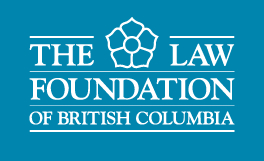Three new specialized legal clinics help to fill gaps in services across BC
Housing security for low-income people, freedom from discrimination for people living with disabilities, and justice for migrants and refugees — with the support of the Province of British Columbia, the Law Foundation has been able to invest in three new specialized legal clinics working to address these pressing and complex legal needs across the province.
Each new clinic is integrated with an existing Law Foundation-funded advocacy program. The addition of a staff lawyer and legal assistant allows the clinics to amplify service. While still in their infancy, these three clinics are already making a difference — filling a gap for legal services that had been out of reach for many.
HOUSING LAW CLINIC AT THE TENANT RESOURCE AND ADVISORY CENTRE (TRAC) SOCIETY
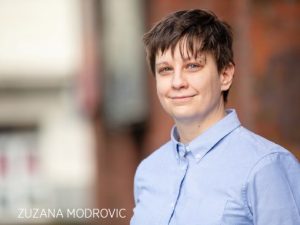 With BC experiencing what governments and experts have acknowledged as a housing crisis, many renters are feeling the pressure of low vacancy rates and high rental prices. The Housing
With BC experiencing what governments and experts have acknowledged as a housing crisis, many renters are feeling the pressure of low vacancy rates and high rental prices. The Housing
Law Clinic builds on TRAC’s 35-year history of providing accessible tenancy assistance for people across the province. Zuzana Modrovic, staff lawyer, says the new clinic has allowed TRAC to expand its scope and help clients with more complicated tenancy matters such as judicial reviews of Residential Tenancy Branch decisions, and the enforcement of monetary orders.
“We’ve always had calls from tenants who had arrangements that were like tenancy agreements, but were not covered by the Residential Tenancy Act for various reasons. Before, we couldn’t
assist — but now we can.”
Modrovic adds that prior to the Housing Clinic, there were few legal options for tenants who could not afford to hire a lawyer.
“People are generally very excited and very grateful to know that we exist.”
DISABILITY LAW CLINIC AT DISABILITY ALLIANCE BC
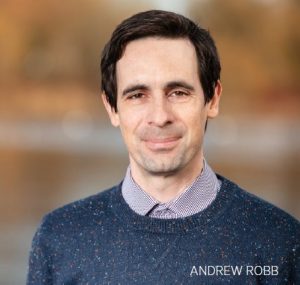 The Disability Law Clinic serves people with disabilities, a population that faces a high rate of discrimination and significant barriers to accessing the justice system. The clinic was created to address a growing need for legal services in this area that exceeded the capacity of existing pro bono legal clinics.
The Disability Law Clinic serves people with disabilities, a population that faces a high rate of discrimination and significant barriers to accessing the justice system. The clinic was created to address a growing need for legal services in this area that exceeded the capacity of existing pro bono legal clinics.
Andrew Robb, staff lawyer at the Disability Law Clinic, offers services on a spectrum from individual to systemic advocacy.
“I contribute to policy advocacy, I represent clients who have legal disputes in relation to disability rights, and I also support our advocates who help people get government disability benefits,” he said.
One of Robb’s proudest moments over the past year was when he helped a client with disabilities who was facing eviction and “falling through the cracks.” If she had been evicted before she found accessible housing, she would have been forced to move into a long-term care facility, at a very risky time. The case emerged just as pandemic restrictions came into place, so clinic staff had to navigate an entirely new remote court process.
“It really felt like a life-or-death situation. We were able to ultimately get before a judge and to convince them to postpone the eviction to give the person time to find other housing.”
IMMIGRATION AND REFUGEE LEGAL CLINIC AT THE IMMIGRANT SERVICES SOCIETY OF BC
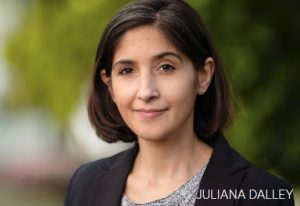 The Immigration and Refugee Legal Clinic is one of the only legal clinics in BC focused on serving refugees, immigrants and migrants. The clinic fills a need for legal services for people engaged with the immigration system who often have no other support systems in place and are not able to access a lawyer. The clinic provides individual client representation as well as advocacy related to systemic issues.
The Immigration and Refugee Legal Clinic is one of the only legal clinics in BC focused on serving refugees, immigrants and migrants. The clinic fills a need for legal services for people engaged with the immigration system who often have no other support systems in place and are not able to access a lawyer. The clinic provides individual client representation as well as advocacy related to systemic issues.
Juliana Dalley, one of the Clinic’s staff lawyers, notes that it has addressed a previously unmet need for legal support in complex immigration and refugee cases that are not covered or easy to handle in the traditional legal aid system.
“We assist with complex refugee hearings, as well as appeals where someone’s refugee claim has been denied. We also do judicial reviews, where clients have exhausted their appeals and the last option is to go to court to seek judicial oversight of the refugee decision making process.”
“We also assist people in the areas of immigration, such as helping people with humanitarian and compassionate applications for permanent residence.”
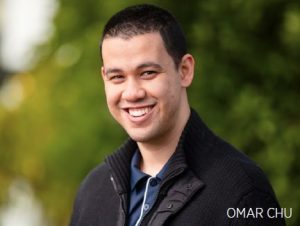 Legal assistant Omar Chu says that the need for this type of legal support cannot be overstated, particularly in cases in which families are facing deportation or separation.
Legal assistant Omar Chu says that the need for this type of legal support cannot be overstated, particularly in cases in which families are facing deportation or separation.
“I think in a lot of cases, there really isn’t anywhere else that people could go. It’s hugely important that the clients have an opportunity to be represented and have the opportunity to have the best chance to stay in Canada or be reunited with their family.”
